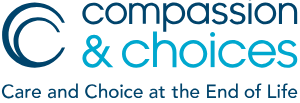We had the privilege of sitting down with Crispin Sargent, a certified Grief Yoga instructor, Grief Educator, End of Life Doula, Certified Advance Care Planner, and member of the End-of-Life Options Colorado Board of Directors. With over 35 years of experience, Crispin has dedicated her career to helping clients delve deeply into their end-of-life wishes and plans. Here, she shares her invaluable insights on the importance of end-of-life planning.
The Importance of End-of-Life Planning
End-of-life planning is crucial for mapping out your current situation and envisioning where you would like to be in your final days. Regardless of when you start, having a plan provides guidance on how to live now and what to prepare for in the future.
Essential Questions for End-of-Life Planning
Crispin emphasizes the importance of asking key questions as you navigate the “business of dying”:
- What is your plan, and how will you fund it?
- What are the associated costs? Consider emotional, physical, financial, and time costs.
Components of Your End-of-Life Plan
Health Projections
- Evaluate your current health. Are you in good health with a solid self-care plan?
- Consider pre-existing conditions and family history.
- Budget for unforeseen health conditions or accidents.
Support Systems
- Solo aging: Do you have a plan for aging alone?
- Outside support: Will you need services as you age, and who will provide them?
- Family involvement: Is it realistic to expect family support, and what will it cost them emotionally, physically, and financially?
Understanding Available Services
- Medicare and Medicaid
- Veterans Benefits
- Social Security
- Disability
Living Arrangements
- Your home: Is it paid off, affordable, and safe as you age?
- With family: Is living with family a reasonable expectation? Have you discussed it with them?
- Assisted living: Can you afford it? Will you need to sell your home to pay for it?
Financial Investments
- Retirement plans and 401Ks
- Inheritances
- Social Security Benefits
Legal Documents
It’s crucial to have the following documents in place and updated annually:
- Medical and Financial Power of Attorney
- Living Will or Advanced Directive
- Last Will and Testament
- MOST (Medical Orders for Scope of Treatment)
- Burial preferences or plans
Navigating and Updating Your Plan
Having clear answers rather than assumptions is vital. Regularly re-evaluating your plan ensures it remains relevant and realistic as circumstances change.
End-of-life planning is an essential process that provides peace of mind and clarity for you and your loved ones. By addressing these critical areas and seeking guidance from experts like Crispin Sargent, you can create a comprehensive plan that reflects your wishes and needs.




